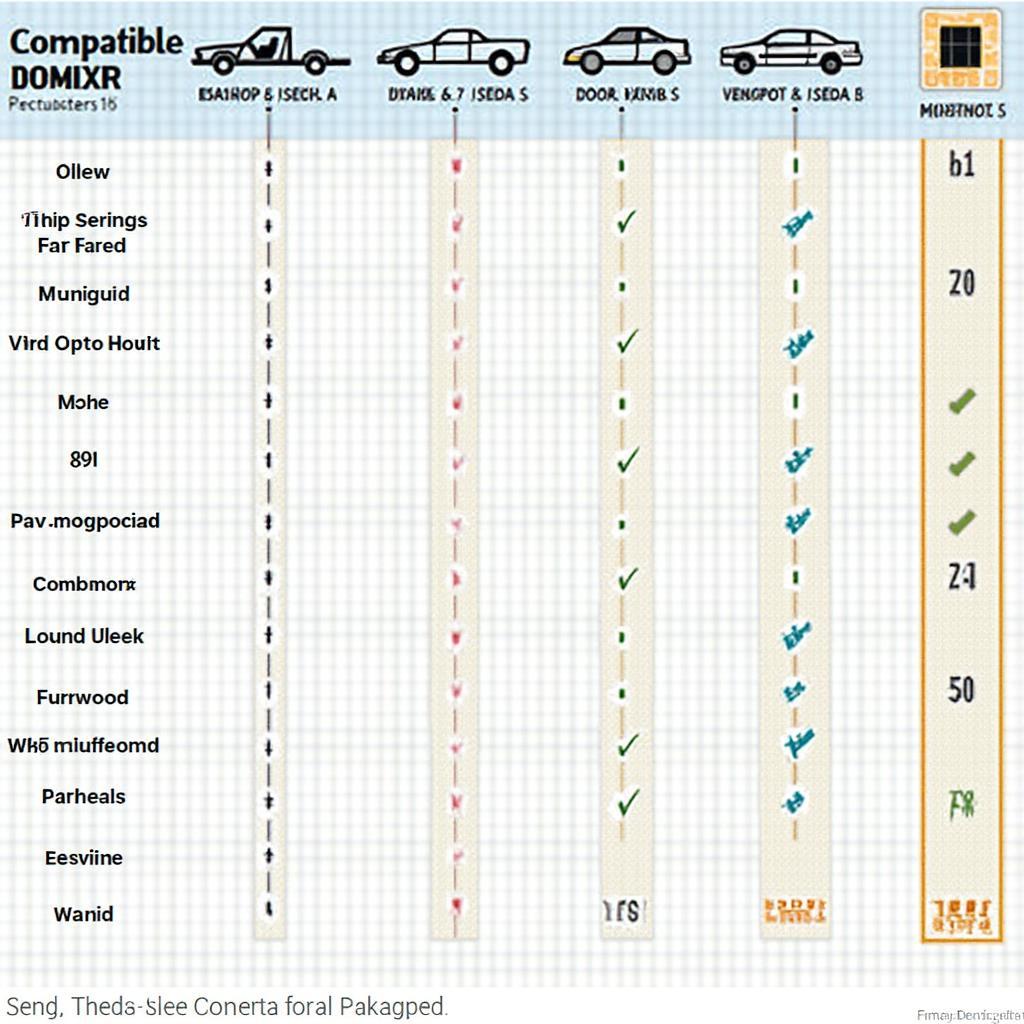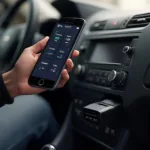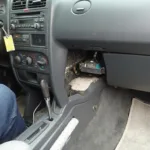Finding the right OBD2 scanner can feel like navigating a maze. With so many options available, it’s understandable to wonder, “What OBD2 scanner fits my car?” This guide will illuminate the path, providing you with the knowledge to choose the perfect OBD2 scanner for your specific needs.
Choosing the right OBD2 scanner isn’t as simple as grabbing the first one you see. It requires understanding your vehicle’s specific requirements and your diagnostic needs. Do you need a basic code reader for checking engine lights, or are you a professional mechanic requiring advanced bidirectional controls and live data streaming? This guide will help you answer these questions and more. You can learn more about specific scanners like the zurich pro obd2 scanner.
Understanding OBD2 Protocols and Your Car
Every car manufactured after 1996 in the United States (and most other countries) is equipped with an OBD2 port. However, not all cars use the same communication protocols. Identifying your car’s specific protocol is crucial for choosing a compatible scanner. The most common protocols include ISO9141-2, KWP2000, SAE J1850 PWM, SAE J1850 VPW, and CAN.
How to Determine Your Car’s OBD2 Protocol
The easiest way to determine your car’s protocol is to check the sticker under your hood, usually near the emissions information. It should list the supported OBD2 protocols. Alternatively, you can consult your owner’s manual or use an online OBD2 compatibility checker.
Types of OBD2 Scanners: Finding Your Perfect Match
OBD2 scanners range from basic code readers to professional-grade diagnostic tools. Understanding the different types is key to selecting the right one for your needs.
Code Readers: For the DIY Enthusiast
Code readers are simple, affordable devices designed to read and clear diagnostic trouble codes (DTCs). They are ideal for checking the dreaded “check engine” light and understanding the underlying issue. If you’re a DIYer looking for a quick and easy way to diagnose basic car problems, a code reader might be sufficient.
Scan Tools: For the Advanced DIYer and Technician
Scan tools offer more advanced functionalities than code readers. They can display live data streams from various sensors, allowing you to monitor engine performance in real-time. Some scan tools also offer bidirectional controls, enabling you to activate specific components for testing.
Professional Scan Tools: For the Expert Mechanic
Professional scan tools are the most comprehensive diagnostic tools available. They offer a wide range of features, including advanced coding and programming capabilities, access to manufacturer-specific codes, and detailed diagnostic information. These tools are essential for professional mechanics and technicians working on complex vehicle systems. You might be interested in learning about how to tune a car with obd2.
Which OBD2 Scanner Fits My Car? Key Considerations
Beyond compatibility, several factors should influence your OBD2 scanner choice.
Budget
OBD2 scanners vary significantly in price. Set a budget before you start shopping.
Features
Consider the features you need. Do you need live data streaming? Bidirectional controls? ABS or airbag system diagnostics?
User Interface
Choose a scanner with a user-friendly interface and clear, easy-to-understand displays.
Vehicle Compatibility
Ensure the scanner is compatible with your car’s make, model, and year. Check for compatibility with the bosch connect analyzer obd obd2 scanner.
Conclusion: Making the Right Choice
Choosing the right OBD2 scanner for your car doesn’t have to be daunting. By understanding your vehicle’s OBD2 protocol, considering your diagnostic needs, and weighing the available features and price points, you can find the perfect scanner to empower you with valuable insights into your car’s health. You can also explore specific car models, like the obd2 mitsubishi outlander.
FAQ
- What does OBD2 stand for? On-Board Diagnostics, Second Generation.
- Where is the OBD2 port located? Usually under the dashboard on the driver’s side.
- Can I use any OBD2 scanner on any car? No, the scanner must be compatible with the car’s protocols.
- What are diagnostic trouble codes (DTCs)? Codes that indicate specific malfunctions within the vehicle’s systems.
- Can I clear DTCs with an OBD2 scanner? Yes, most scanners allow you to clear codes after addressing the underlying issue.
- Do I need a professional scanner for DIY repairs? Not always, a basic code reader or scan tool might be sufficient depending on the repair.
- What is obd2 autocal?
Contact us via WhatsApp: +1(641)206-8880, Email: [email protected] or visit us at 789 Elm Street, San Francisco, CA 94102, USA for 24/7 support.


